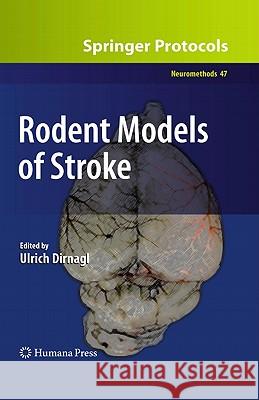Rodent Models of Stroke » książka
Rodent Models of Stroke
ISBN-13: 9781607617495 / Angielski / Twarda / 2010 / 286 str.
In view of the numerous failures of clinical trials aimed at improving stroke therapy, the role and potential benefit of experimentally modeling focal cerebral ischemia in rodents has been debated. When methods of systematic review and metaanalyis are applied, however, it turns out that experimental models actually faithfully predicted the negative outcomes of clinical trials. In addition, thrombolysis and neuroprotection by hypothermia, first described in animal models, are key examples of treatment modalities that have made it successfully into clinical practice. In Rodent Models of Stroke, an international consortium of authors aims at critically addressing the issues on a very practical level, from choosing the model and outcome measures, designing the experiment, conducting and analyzing it, to reporting it in a scientific publication. The structure and content of the book reflect both the authors' longstanding expertise in experimental and clinical stroke research and their roles in training the scientific community in the tools of the trade. As a volume in the successful Neuromethods series, the chapters provide authoritative reviews of the most commonly used, well-honed approaches in the field today. Stimulating and easy-to-use, Rodent Models of Stroke will help its readers understand the limitations and the opportunities of modeling stroke in rodents and enable them to conduct experiments which will not only improve our understanding of the pathophysiology of this devastating disorder but also serve as the basis for developing new highly effective treatments.











